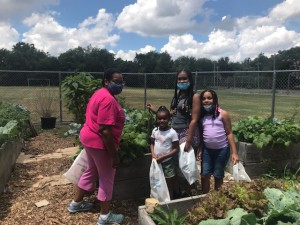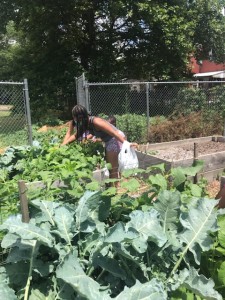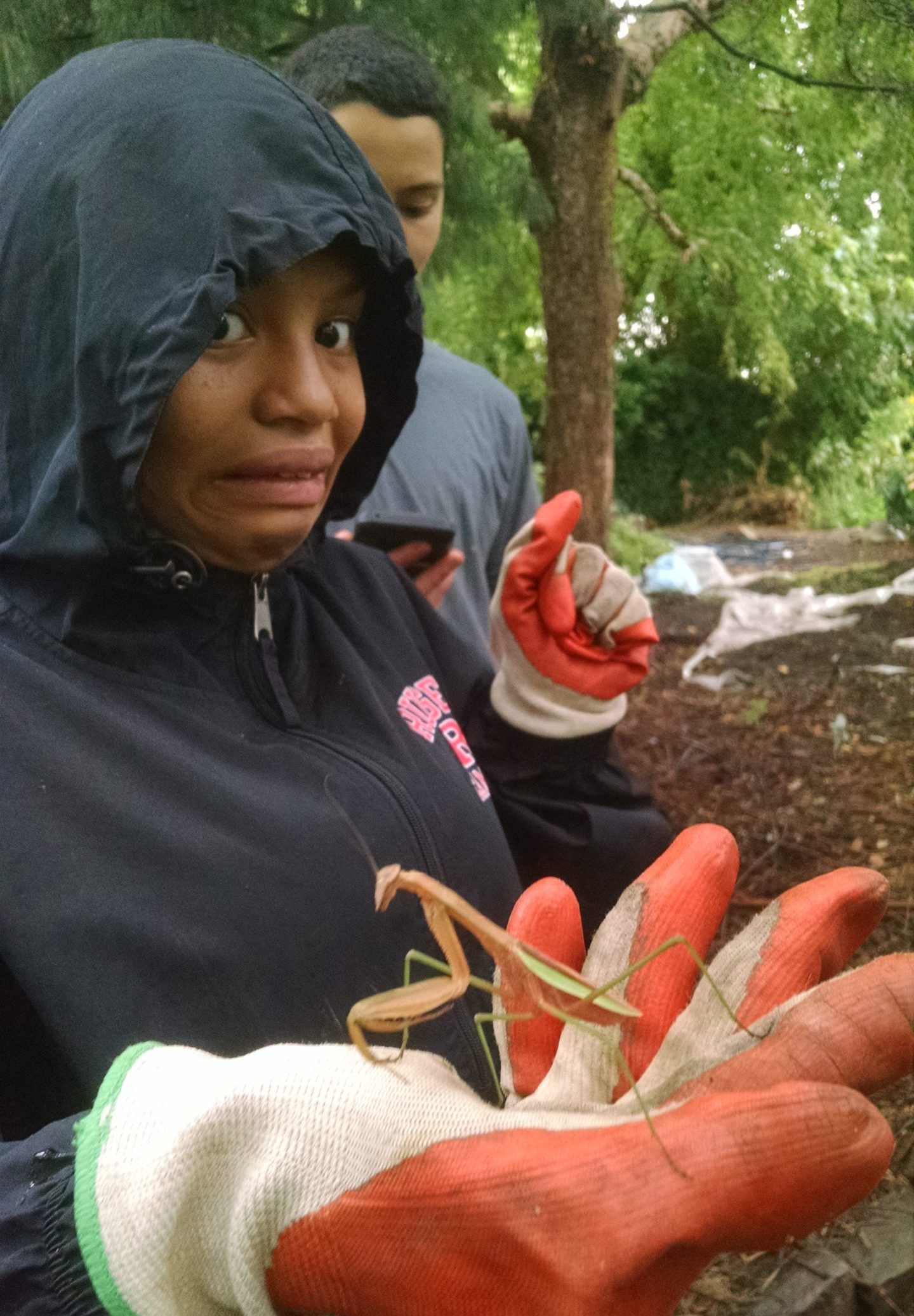A Father’s Gift: Growing Food
On August 8, 2020 my father died from health complications he has faced for the last several years. I already miss my father, but the gathering to celebrate his life this past weekend was filled with wonderful memories. We laughed, a lot, as the stories grew. I’m sure my dad approved! One of the great memories we all had of Dad was his garden, his vegetable garden. He had lots of helpers (seven of us) and we grew lots of produce. One of the blessings of the pandemic is the increase in home and community gardens, as families and communities realize the power of a garden, not only to produce fresh food but to bring families and communities closer together. CFET is doing its part to encourage this increase.
This past spring we held a seedling giveaway for neighbors. We gave away nearly 1500 seedlings, of all kinds. Most went to people’s home gardens or pots, and some went to raised beds in Liney Ditch. 10 of our neighbors adopted a raised bed, and they are growing their own vegetables. Our hope is one day that most of the raised beds will be managed by neighbors, turning the Liney Ditch garden into a true community garden.
Our house came with a very deep backyard, so that toward our back property line we were able to put in a 30 by 10 foot garden, in the ground. There was full sun so the vegetables thrived. My memory of spring was using a spade to turn the soil upside down, and then using a hoe to break up the chunks of soil, and the steel rake to smooth it all out. We then got to planting the seeds. We put in rows of lettuce, carrots, beets, green beans and radishes. We also built mounds of soil for cucumbers and summer squash and a few pumpkins. We had at least 10 tomato plants, staked up, and we put in some sun flowers along the northern edge of the garden, to take advantage of the full sun, without worrying that the tall plants would block the sun from reaching the vegetables. It was an amazingly abundant garden, and with each year, turning the soil upside down each spring, the soil got richer and darker.
Once the rows were set, we walked between the rows so as not to compact the growing surface. We spent the summer trying to stay on top of the weeding. It was a chore for two of the kids, at least once a week, to remove those weeds. There were times when a critter or two would ravish a tomato plant, but in general, we were free of that, so no need for fences. We didn’t use any artificial fertilizer but built up the soil over time.
There was much I learned from working with Dad. How hard it is to garden such a large space, which made me think of how hard the work of the farmer is, particular the family farmer who doesn’t have the gigantic equipment to make the work a bit easier. I also learned that the farmer is at the mercy of the weather. If there is too much rain, no matter how good your drainage might be, you lose some of the crop. Or perhaps there is too little rain, or perhaps the pollinators are not as abundant. We put the seed in the ground, do our best to set the optimal conditions for flourishing, but so much is out of our hands.
But we also learned how much we could depend on the garden to feed us, not only in the summer and the fall, but over the winter. My mom canned lots of the summer vegetables: cucumber, tomatoes and green beans. I remember the cellar room filled with small and large canning jars, filled with veggies that would provide us lots of delicious and healthy meals over the winter. It is a lot of work, to build and tend a garden, but it is also a blessing, not only in the food it produces, both for now and in the winter, but for the lessons it teaches about nature, about our relationship to nature, our need to be attentive and to tend to the garden, and about the need to cooperate, with each other and with nature.
This pandemic has pushed so many people to start growing their own food, so that at least some aspect of their food supply is under their control. Most of us, if not all of us, have little idea where our food comes from. We’ve become so disconnected from the food source, and we have come to take for granted the production and distribution of our food. Our technology has enabled us to eat independent of the season, and to depend on so many nameless others, such as undocumented workers, to stock our grocery stores, and so make possible oranges in winter, for example. So, the pandemic has led to more gardens, at our homes and in our communities. You can read a bit about NJ community gardens here. This is a good thing; it is the “seedbed” for a vibrant community.
CFET continues to employ youth who work in our gardens and run our Farmer’s Market (Fridays, 3-6PM, 412 Japser Street). The raised beds that our neighbors tend are daily producing food that they can use with their family. There is such possibility in a garden, in the fruit of our labor and the blessing of good soil, plentiful water and beautiful sunshine. I learned from my father the value of growing at least some of your food. We hope our neighbors have the same experience, to relish their labor and the fruit of that labor. So much is out of our control in this pandemic and the racial reckoning that our nation faces today. Growing our own food provides one way to manage at least some aspect of our lives. At CFET we encourage a more direct sovereignty over the sources of our food, and we invite our neighbors to enter into that partnership with nature that can be trying at times, but that will ultimately bless all involved with an abundant harvest.
If you aren’t growing some of your own food, even in a pot on your apartment deck, consider it. It is not hard. A bit of tender loving care, and you can have delicious basil, for pesto, or some plum tomatoes to add to your salad. The earth wants to be in partnership with human beings to meet our basic needs. We have to do our part, and we can begin by putting up a garden. It’s not too late. You can grow lettuce and radishes and kale right now. The perfect time.
I miss my Dad, yes, but I also cherish the memories of the garden, and I am so blessed to be part of an organization (CFET) that aims to empower more gardening in Waterfront South in Camden, NJ. Join us! Support our efforts.
There is much to learn from growing food. May you have that blessing!
Peace,
Mark Doorley, Ph.D.
Chair of the Board of Trustees
The Center for Environmental Transformation





